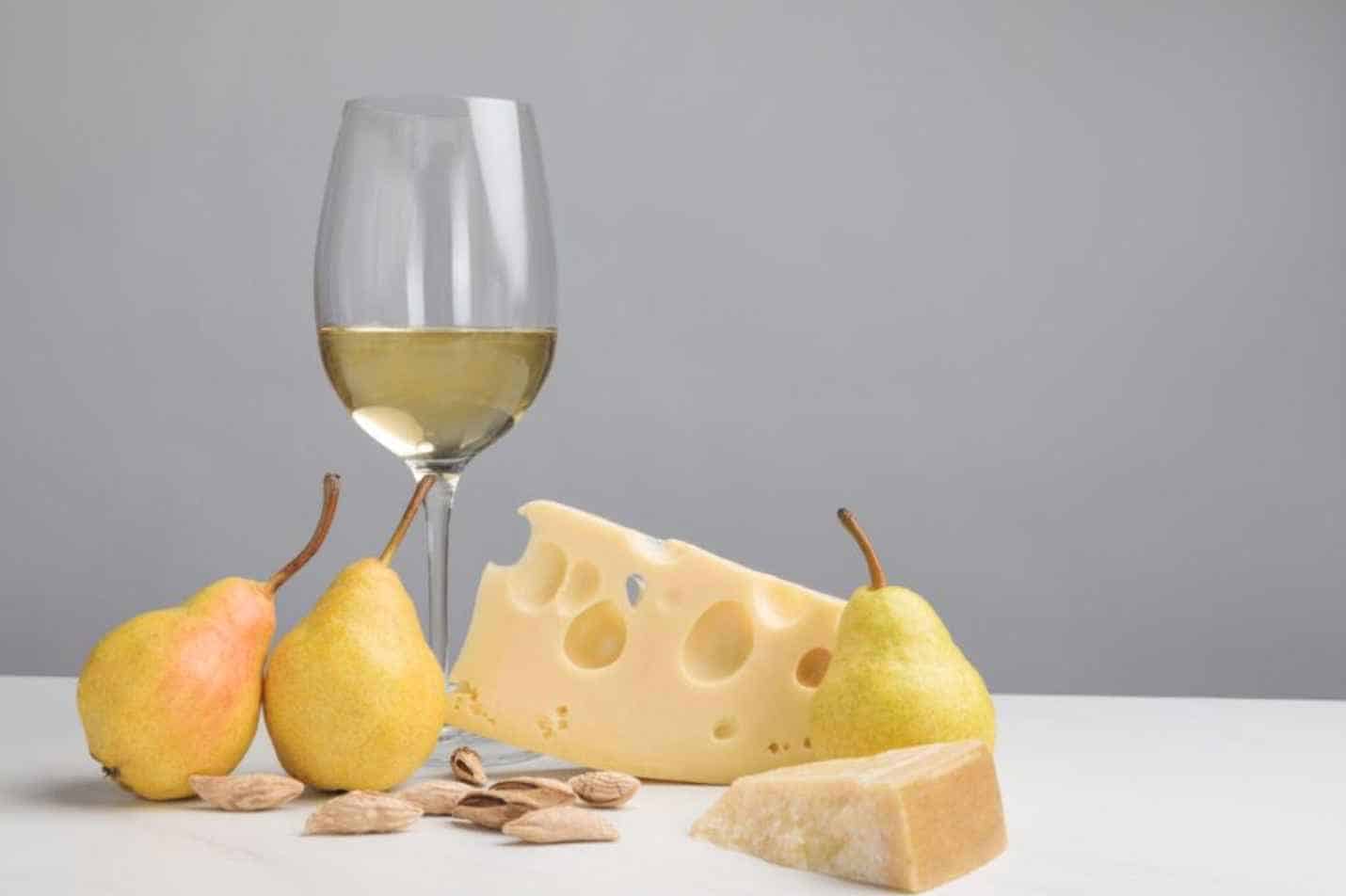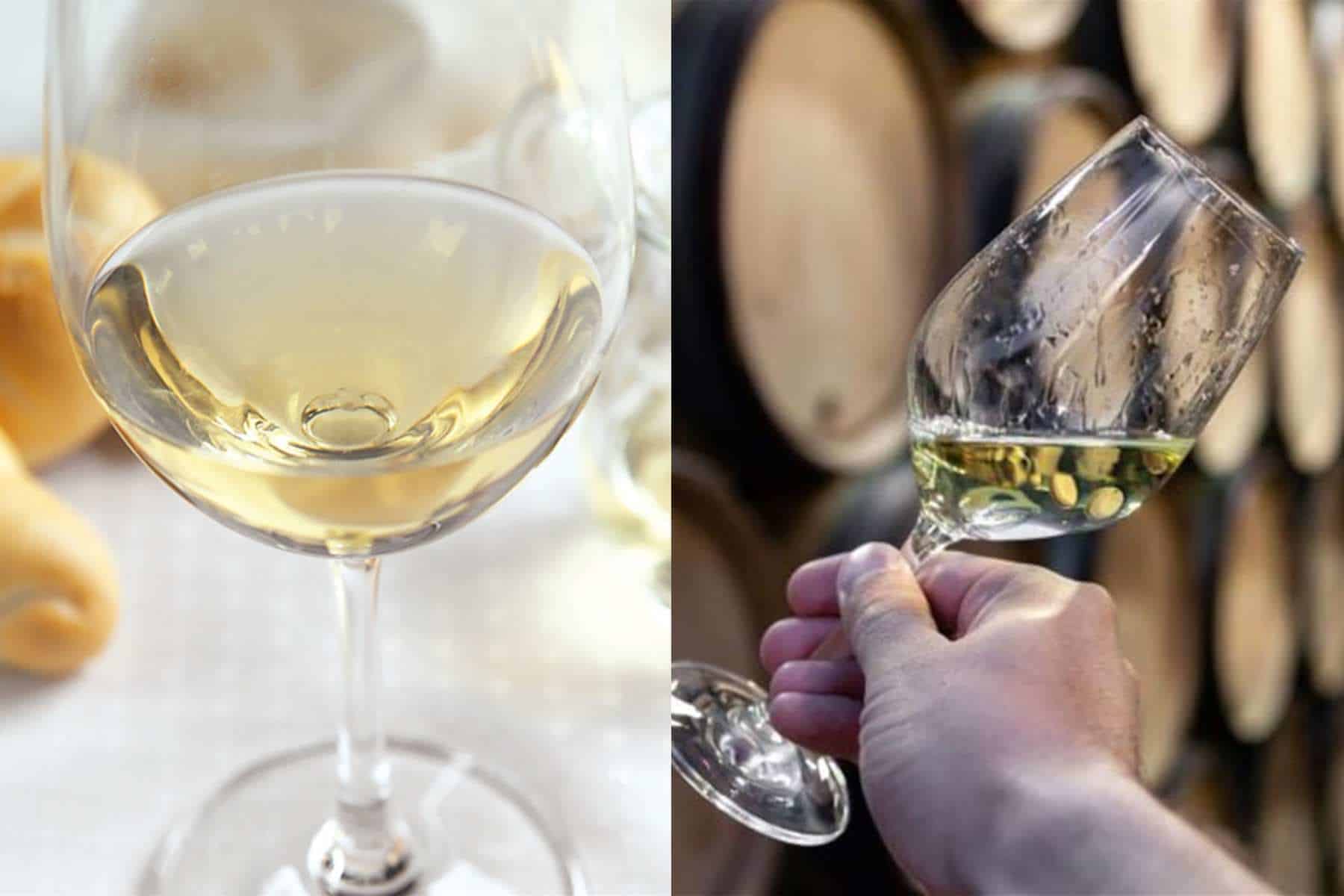Do you want to know everything about buttery wines? Well, we can help you with that! “What is buttery wine?” “Does buttery wine taste what it sounds like it is?” “Is wine being buttery supposed to be a good thing?”
If these are your questions and concerns, you are in the correct discussion! Today, we will go through all these questions and much more. With that, let us slip right into this talk now!
What Is Buttery Wine?
When it comes to wines, the term “buttery” refers to a style or descriptor.
Wine can become buttery by being exposed to oak barrels. On the other hand, wine can also become buttery through malolactic fermentation. After all, this process produces diacetyl.
“Buttery” can be an overall descriptor. However, it can also strictly refer to how a wine tastes, smells or feels. With that, let us discuss how buttery wine tastes, smells and feels like next.
The Taste of Buttery Wine
First, let us talk about how a buttery wine would taste. Well, it is pretty straightforward. Buttery wine tastes how it sounds – buttery!
As we said above, one of the ways for a wine to become buttery is through malolactic fermentation. Now, this process produces diacetyl, the same thing added to popcorn and other buttery snacks to copy the real thing.
Looking at the acidity of the wine is another way to describe how buttery wine tastes. A buttery wine would taste flat. That is, the acerbity will likely not be prominent (if there will be any).
However, it might be the best time to note that a buttery wine will likely not only taste buttery. As you might already know, wines are complex drinks.
More often than not, a bottle holds a wide array of flavors. With that, do not expect a buttery wine to taste like butter in liquid form. “Buttery” will likely be only one of the many ways to describe a particular bottle.
Other Flavors to Expect with Buttery Wines
As we have already said, a buttery wine will likely taste more than just like the dairy product. With all the wines out there, it will probably mingle with any flavor you can think of at some point. However, there are flavors that almost always go hand in hand with buttery flavors.
Those are vanilla, coconut, caramel, and butterscotch flavors. With that, you can also expect to taste these flavors when one describes a particular bottle as buttery. Sometimes, these flavors are even used interchangeably with the term buttery!
The Smell of Buttery Wine
Before tasting a wine, you will likely get a whiff of it first. As we stated above, “buttery” is an aroma descriptor too. With that, can you guess how buttery wine smells?
Well, like with the taste, it is also pretty straightforward. Buttery wine smells how it sounds – buttery!
Again, keep in mind that wines are complex. More often than not, these drinks do not only offer a myriad of flavors but aromas too. “Buttery” will likely be only one of the numerous ways to detail the smell of a particular wine.
Other Aromas to Expect with Buttery Wines
Similar to the flavors, one can also expect vanilla, coconut, caramel, and butterscotch aromas in a bottle of buttery wine. In addition, as we said above, these four are even used interchangeably with the term buttery.
With that, even if a bottle does not hold the “buttery” descriptor, if it has one of the other four, you can still expect the dairy product smell in the bottle.
The Feel of Buttery Wine
It could be hard to imagine how buttery wine tastes and smells. That is even after knowing it tastes and smells like butter. That is because wine does not only express a single flavor and aroma.
It could be hard to imagine how the buttery taste and smell can mingle with other flavors and aromas. It is a different story with imaging how buttery wine feels, though.
Imaging how buttery wine feels is easy. Buttery wine feels like butter – creamy and oily. It will feel smooth on the mouth or tongue.
Other Textures to Expect with Buttery Wines
Unlike with the flavors and aromas, there aren’t any other textures that often go with the smooth feel of buttery wines. However, there are textures not to expect.
First, buttery wines will likely not be sharp. As we have said above, these wines are often flat. That is, these wines generally do not have high levels of acidity. With that, a buttery wine will likely not be sharp.
On the other hand, a buttery wine is unlikely to be heavy too. That is because, generally, these wines do not have high tannicity. With that, a buttery wine will likely not be heavy.
Buttery Wine VS Oaked Wine
Before we move on, let us briefly discuss buttery wines next to oaked wines.
Earlier, we said that wine could become buttery by being exposed to oak barrels. With that, it could be easy to assume that oaked wines are also buttery wines. That is not true, though. Not all buttery wines are oaked wines, and not all oaked wines are buttery wines.
As you might already know, many wines get oaked. After all, it is one of the main ways to add flavors and aromas to a wine. However, a buttery note is not the only thing oak barrels can add to the mix.
With that, you do not have to hunt for unoaked bottles to avoid buttery notes. On the other hand, looking for oaked wines is also not the best way to look for buttery wines.
Is a Buttery Wine a Good Thing?
You now know what buttery wine means. However, it is not clear whether it is a good or bad thing.
We know that wine is good. On the flip side, we know that butter is also good. However, does that mean the two are also good together?
Well, it depends!
At some point, buttery wines were it wines. Generally, that does not seem to be the case anymore, though. Still, that is not to say a buttery wine is a bad thing.
The only time a buttery wine might become a bad thing is if the buttery part becomes too much. (However, keep in mind that this “rule” applies to almost every descriptor out there.)
That is, when the buttery taste, smell, or feel is no longer in harmony with the other characteristics of a wine. In other words, when it overpowers the other characters of the wine.
As you probably already know, people have different preferences. For example, one likes red wines better, while the other prefers white ones. That does not mean any of the two is better, though. (Not here, at least!) With that, the answer to this question is not straightforward, as it would depend on who you ask.
We say give buttery wines a try, though! Do not let other people’s opinions dictate yours. Give it a try and give the question an answer yourself!
Meet the Most Common Buttery Wine
Now, if you want to try a buttery wine, you need not look further. A buttery wine has likely been sitting under your nose all this time. Chardonnay, also known as one of the crowd favorites, is a buttery wine.
Chardonnays are dry white wines with medium bodies and acidity levels. On the other hand, while they barely have any tannins, they generally sport high ABVs. As for the notes, aside from the buttery flavor and aroma, fruity notes are also noticeable.
If one wants to try a buttery wine, this one is the one to try. Ask anyone! Anyone and everyone will likely point you to this wine for a sip of a buttery wine.
Buttery Wines to Try Out
If Chardonnays are not up your alley, you do not have to worry. We have some other recommendations here that you can try out.
- White Rioja
- Pinot Blanc
- Chenin Blanc
- Viognier
- White Burgundy
(Note: While these wines are known to be buttery, some bottles stray. You might want to ask your sommelier to ensure the wine you want to get is a buttery wine.)
As you might have noticed, more often than not, buttery wines are white wines. However, this is where it all gets a little confusing.
That is because all red wines are buttery. Despite that, you will likely not hear or read many referring to reds as buttery. One reason is that, while they are buttery, the buttery notes are hardly detectable.
Final Words
What is buttery wine? Today, we answered what buttery wine is and much more. Buttery wines might no longer be the dominant wines of today. However, that is no reason not to give these wines a try.
Buttery wines are not the only wines to know and try, though. Do you want to know more about other wines? You can go ahead and visit our other wine talks for that!
That is all from us about buttery wines, though. We hope we can help you in your quest to know everything about buttery wines!

George Moore, co-founder of Wine Flavor Guru, is a charismatic entrepreneur with a rich background in California’s wine industry. Alongside Sylvia, he transformed a Sonoma County vineyard into a source of premium wines. George’s expertise in sourcing exceptional grapes and his approachable style make wine appreciation both accessible and engaging.








